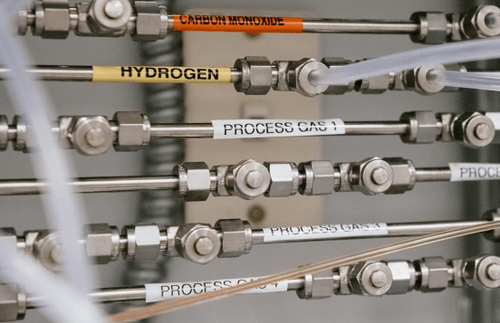LanzaTech has announced that its DRAGON facility project has received a £25m grant from the UK Department for Transport’s Advanced Fuels Fund Competition, according to a news release.
LanzaTech’s Project DRAGON, which stands for Decarbonizing and Reimagining Aviation for the Goal Of Netzero, will convert waste gases into synthetic kerosene for use in sustainable aviation fuel (SAF).
With the funding, Project DRAGON will complete engineering and the project development in collaboration with Fluor Corporation and Technip Energies, required to reach a final investment decision (FID) for the entire waste gas to SAF project. The proposed plant, which will be sited in Port Talbot, South Wales, is expected to produce 102 million liters per year of ATJ Synthetic Paraffinic Kerosene (ATJ-SPK) to be blended with kerosene to make SAF, representing ~1% of annual UK jet fuel demand and making a significant contribution towards the UK Mandate for supplying 10% of total annual jet fuel demand in the U.K. with SAF by 2030.
LanzaTech recently reached a funding partnership with Brookfield Renewable, under which Brookfield committed to invest an initial $500m in constructing and operating new carbon capture and transformation projects that have achieved certain pre-agreed milestones. Brookfield will be LanzaTech’s preferred capital partner for LanzaTech CCT opportunities in Europe and North America and following initial investments totaling $500m, Brookfield could commit to making an additional $500m available for investments in the strategic partnership if sufficient projects are available at the agreed milestones. Brookfield will also invest $50 million in LanzaTech to support further corporate development.
The company went public earlier this year in a SPAC acquisition that valued LanzaTech at an implied $1.8bn pro forma enterprise value.
“We must accelerate deployment of SAF plants in the UK,” said Jennifer Holmgren, CEO of LanzaTech, in this week’s news release. “We’re excited that Project DRAGON has been recognized for its potential to deliver results and create new jobs while producing the volumes of SAF greatly needed by a sector that has limited options today. I thank the UK Department for Transport for its continued support and for showing leadership in validating new technologies that can have a real impact in the UK and beyond.”
Jonathon Counsell, International Airline Group’s head of sustainability, said: “Investing in Sustainable aviation fuels (SAF) is one of the best opportunities our industry has to decarbonise. We’re delighted that Project Dragon has received crucial financial support in the UK from the Department for Transport Advanced Fuels Fund.”
“IAG has committed $865m in SAF purchases and investments to date, including supporting the first of its kind LanzaJet ethanol-to-jet plant being built in the US. With the right policy support to incentivise further investment, the UK could see many SAF plants built over the next decade, creating 6,500 jobs and saving over three million tonnes of CO2 per year as well as improving the UK’s energy security.”
The feedstock for the planned facility would be waste gases, including potentially from Tata Steel’s adjacent steelworks in Port Talbot. These would be transformed via LanzaTech’s gas fermentation platform to make ethanol as a feedstock for the ATJ facility. LanzaTech have selected Fluor Corporation, a leading global engineering, procurement, and construction (EPC) firm, to provide Front End Engineering and Design (FEED) services for this part of the project. “With more than 110 years in the industry, Fluor brings world class front-end engineering and EPC firm experience to assist LanzaTech in deploying its technology,” said Jason Kraynek, president, Production & Fuels, Fluor Corporation.
In a second step the ethanol would be turned into SAF using the LanzaJet™ Alcohol-to-Jet (ATJ) process, which incorporates Technip Energies ‘ethanol to ethylene’ Hummingbird™ technology. This would be the world’s first commercial scale integration of Gas Fermentation (GF) and ATJ to produce SAF with GHG reductions expected to be greater than 70% relative to conventional jet fuel.
A spokesperson for Tata Steel in the UK said: “Achieving our ambition of making CO2 neutral steel involves looking at all ways to reduce our emissions, or in this case, potentially transforming some of our waste gases into useful products such as jet fuel.”
Bhaskar Patel, Technip Energies – SVP Sustainable Fuels, Chemicals and Circularity stated “We are excited to be partnering with LanzaTech™ through our teams in the UK on this journey to help decarbonize the UK aviation industry. The implementation of T.EN’s Hummingbird™ technology integrated within the LanzaJet™ ATJ process provides a ‘best in class’ technology pathway for conversion of ethanol to SAF”.
Jimmy Samartzis, CEO, LanzaJet said: “Project DRAGON will contribute roughly 10% of the entire UK Mandate for SAF by 2030. That’s significant, and government leadership like this is paving the way for emerging industries like SAF to achieve these ambitious and necessary goals. LanzaJet’s alcohol-to-jet technology paired with LanzaTech’s gas fermentation process is changing how we think about the circular economy across the world and driving decarbonization for aviation. We’re thrilled to be partnering with LanzaTech on this work and we’re grateful for this support from the UK Department for Transport.”
The Department for Transport’s Advanced Fuels Fund (AFF) Competition was established to support the UK advanced fuels sector in development and commercial deployment of innovative fuel production technologies that are capable of significantly reducing near-term UK aviation emissions, strengthening the UK project pipeline, and broadening technology options.





